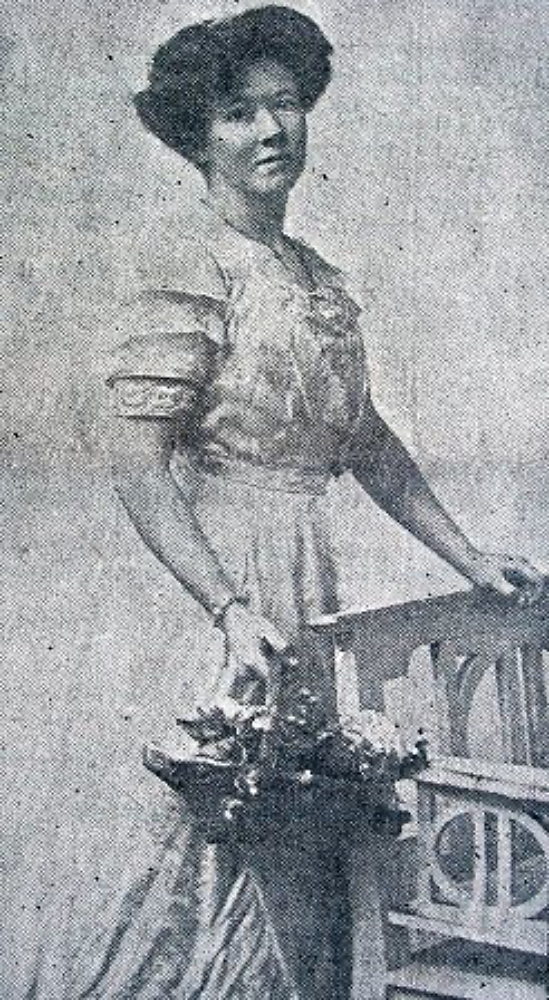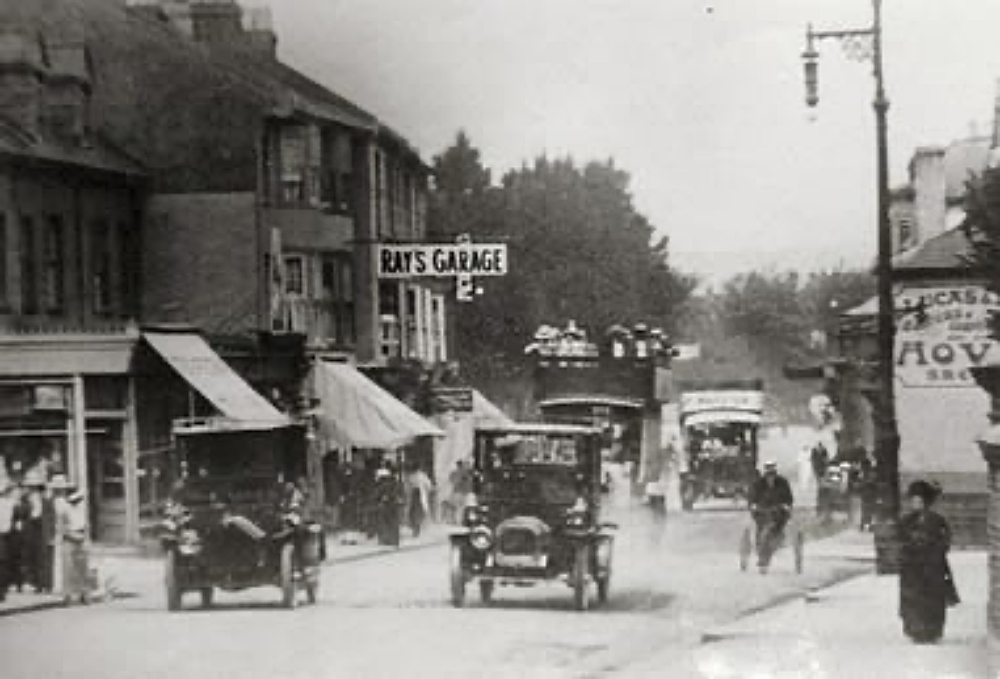Alice Neville – driving force for change
A perceptive Worthing Gazette reporter wrote in 1912: “It would be a bold man indeed who would attempt to place any limitations on woman’s ambitions.” He was writing about Alice Hilda Neville, whose incredible life is described below, but it could equally apply to each one recalled in these memories of the indomitable women of Worthing.

ALICE NEVILLE appeared to be a typical middle-class Edwardian lady. Not quite as slim or elegant as some who graced the pages of the society magazines in 1912, but she was no doubt considered a worthy “catch” by numerous local males.
In fact, Alice had very different plans. So different that the same Gazette reporter was later to comment: “We have in our midst a young lady who exhibits in a marked degree a fine spirit of adaptability and courage in a branch of business activity to which comparatively few ladies have yet applied themselves. For this, Miss Neville is worthy of the highest commendation.”
from the outset, Alice Neville displayed a desire for absolute independence in the way she earned a living. The new-fangled automobile fired her imagination and she quickly recognised its potential in a way few of her contemporaries had grasped.
Without taking a single driving lesson, she travelled to Reading and bought herself a Rover car. After staying in that town for the weekend to acquaint herself with its capabilities, she drove the car all 60 miles home to Worthing – at which point she decided to get engineering experience by pulling the car to pieces and rebuilding it!
This accomplished, she bought an early typewriter, taught herself how to use it, tapped out a thick sheaf of circulars and went into business as Worthing’s first woman chauffeur.
Her infectious enthusiasm so impressed the clients that local runs turned into longer journeys, particularly when the Goodwood horseracing season arrived.
Goodwood proved to be an exceptionally busy time for Alice and her Rover. She was engaged daily to convey the racing correspondents of the Evening News and the Morning Post to and from their temporary headquarters at Worthing’s seafront Warnes Hotel.
On the first two days, the weather was “distressingly wet” and numerous cars skidded all over the road. But by her skilful driving, Miss Neville and her passengers escaped any such alarming experience.
According to a contemporary witness, “when warned that it would be impossible to negotiate the big hill up to Goodwood racecourse in first gear, she took it easily in second”.
Next day, Worthing’s first lady chauffeur couldn’t resist helping her two clients to win “a modest little wager” they had made with two friends. The bet was made that they – in Miss Neville’s Rover – would beat their friend’s home to Worthing.

The race was run in two stages. The first was from Goodwood to the Norfolk Hotel in Arundel, when Miss Neville “had the satisfaction of demonstrating the superiority of the automobile under her control”.
Try telling that to today’s constabulary!
At Arundel, the trio waited two-and-a-half minutes before their rivals came in sight.
On the second stage, the “opposition” was given a start of three minutes but near Patching Pond, their car hogged the road and refused to let Miss Neville pass. Her only hope was to turn off the main road and go by way of Goring Woods – despite a strong risk of an obstruction on this route, which, fortunately, did not materialise.
What Alice later described as “the necessary slackening down along the seafront, for due compliance with the law and the safety of the public in general”, did not prevent her getting her passengers to Warnes Hotel a good 10 minutes before the competition!
Motoring did not represent the sum total of Miss Neville’s ambitions. In her spare time, she became a good photographer, a swimming teacher and (after aviation pioneer Grahame White visited Worthing and took her for a trial flight in his seaplane) declared her intention to visit Brooklands and take up aviation seriously, possibly even as a profession.
Sadly, I have found no record of her achieving that desire, though nothing about this enterprising young Edwardian businesswoman would surprise me. However, loftily, she may have eventually soared, I doubt if her head would ever have been in the clouds.